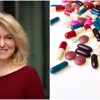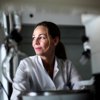Fritextsökning
Artiklar per år
Innehållstyper
-

Trump stoppar information från hälsomyndigheter
Donald Trump inleder sin andra mandatperiod med att instruera flera hälsomyndigheter att pausa all kommunikation till allmänheten. Dessutom införs flera restriktioner mot NIH.
-

Nytt befarat utbrott av marburg – flera döda
Ett nytt misstänkt utbrott av den fruktade virussjukdomen marburg har dödat åtta personer i Tanzania. Nyheten kommer samma dag som Sveriges riksdag beslutade att klassa sjukdomen som samhällsfarlig.
-

The future of healthcare in focus: ”Together, things happen”
In march, it’s once again time for Fokus Patient, an event for the industry where the patients’ perspective takes center stage. It’s a great way to spread knowledge in Sweden and around the world, according to the initiator Penilla Gunther
-

New cell therapy raises hope for curing type 1 diabetes – "Never succeeded before"
For the first time, a patient with type 1 diabetes has undergone an islet transplantation using genetically modified insulin-producing cells that do not require immunosuppressive drugs. "A major immunological breakthrough," says Professor Per-Ola Carlsson, who leads the clinical study, to Life Science Sweden.
-

“Research is always a lot of failures and a few successes”
Gene therapies open up fantastic possibilities, but they are also extremely expensive to produce. Genenova aims to change that and make the treatments accessible to more people. “Our overall ambition is to reduce costs a hundredfold”, says professor Johan Rockberg at KTH Royal Institute of Technology in Stockholm.
-

In search of Marcel Proust's lost health
A great writer, but also a weak person and a hypochondriac. That has been the usual image of Marcel Proust. But the pediatrician and literary scholar Carl Lindgren paints a partly different picture in a new book about the French master's life, health and attitude towards physicians.
-

Investigations against AstraZeneca: ”Chinese interests may be behind them”
Why are there several investigations against AstraZeneca employees in China right now? Life Science Sweden continues to seek answers.
-

Drug development booms in Medicon Valley
When it comes to developing new medicines, the Öresund region is one of the top performers in the EU. Companies working on commission for pharmaceutical companies are highlighted as a success factor. “Everyone has heard of Novo Nordisk, but these companies are unknown to people outside the industry despite being the golden vein of the life science sector,” says Anette Steenberg, CEO of the cluster organisation MVA.
-

”The importance of stratification in a statistician’s August kitchen”
Ingrid Lönnstedt writes about an experiment of her own at home and about what lessons can be learned from it, in a science column.
-

Her company is developing a new tablet form obesity drug
Obesity and diabetes are the primary targets of a new tablet treatment under development by Malmö-based Pila Pharma. The company’s ambition is to take on the billion-selling GLP1 analogues. ‘‘Basically, I expect all the beneficial effects that they have, but not the same side effect profile,’’ company founder Dorte X Gram said in an interview with Life Science Sweden.
-

GSK pays 2.2 billion dollars to settle Zantac lawsuits
British drugmaker Glaxo Smith Kline, GSK, has struck a 2.2 billion dollar settlement, thereby resolving a vast majority of the liability cases pending against the company in the U.S. that alleged its discontinued drug Zantac caused cancer.
-

Läkemedelsbolag skänker nödläkemedel till marburgdrabbade Rwanda
Gilead Sciences har beslutat att skänka 5 000 doser av antivirusläkemedlet remdesivir till Rwanda för nödanvändning under det pågående utbrottet av den fruktade virussjukdomen marburg.
-

From lab to patient – the art of developing new antibody therapies
For 25 years, Danish company Genmab has been developing antibodies and has managed to get several drugs all the way to the patient. Esther Breij has been along for much of the journey and has experienced setbacks, but also huge discoveries. “It’s amazing when you succeed,” she says.
-

Anna Törner: ”Mom, do you think you’ll ever get married again?”
”I realize I’m slowly descending into that familiar statistical rabbit hole, where life’s biggest uncertainties are reduced to point estimates and confidence intervals”, Anna Törner writes in a column.
-

“We should avoid surgery if we can”
Since February this year, she has been Scientific Director Life Science at the Karolinska Institutet. Life Science Sweden met Anna Martling for a talk about role models, surgery and Sweden’s strengths and weaknesses in medical research.
-

Ingrid Lönnstedt: ”The confidence interval and its width”
Always keep an eye on the width of your and others’ confidence intervals, writes Ingrid Lönnstedt in a science column.
-

Anna Törner: Yes, I Am Sick, But Not Weak
”People often say that someone who is ill only has one wish—to get better. But I think that is not true. Someone who is ill also longs to be understood, to be respected, to not have their identity overshadowed by their condition”, writes Anna Törner in a column.
-

The investor: “The major common diseases are hot again”
She has previously been voted Investor of the Year and will now be moderating The Future of Swedish & Danish Life Science congress. We check the temperature of the industry with Nina Rawal from Trill Impact Advisory.
-

Thumbs down for lecanemab in the EU – “Very surprised”
The Azheimer's drug lecanemab has received a negative assessment from the European Medicines Agency’s Committee for Medicinal Products for Human Use (CHMP), according to an announcement made by the Agency last week. Bioarctic’s CEO Gunilla Osswald describes the reactions after the announcement as a surprise and disappointment.
-

Healthcare study: Alzheimer’s blood test shows high accuracy
A blood test for identifying Alzheimer’s has now been tested in the general healthcare setting. According to the researchers, the test was 90% accurate in making a diagnosis.
-

Scandinavian Biopharma ingår avtal med EU-kommissionen
Forskningsbolaget Scandinavian Biopharma har slutit ett avtal med EU-kommissionen om difteriantitoxin.
-

Brokig fårfästing upptäckt i Sverige – Kan bära på nya virus
Den så kallade brokiga fårfästingen har för första gången upptäckts i Sverige, uppger Statens veterinärmedicinska anstalt. Fästingarten kan bära på och sprida flera olika smittämnen.
-

Nobel Prize winner Torsten Wiesel turns 100: “Old men like me should use their experience to help the young”
In 1955, a young Torsten Wiesel jumped on a boat to the US and embarked on a fabulous career as a neuroscientist, crowned with a Nobel Prize for his work. Now 100 years old, he looks back on an intense life and his upbringing in Stockholm, Sweden, which shaped his desire to help the vulnerable in society.
-

Nobelpristagaren Torsten Wiesel fyller 100: ”Gamla gubbar som jag ska använda erfarenheten till att hjälpa de unga”
Året var 1955 när en ung Torsten Wiesel hoppade på båten till USA och inledde en sagolik karriär som hjärnforskare med ett Nobelpris som kronan på verket. Nu fyller han 100 år och ser tillbaka på ett intensivt liv – och på uppväxten i Bromma som formade hans vilja att hjälpa samhällets svaga.